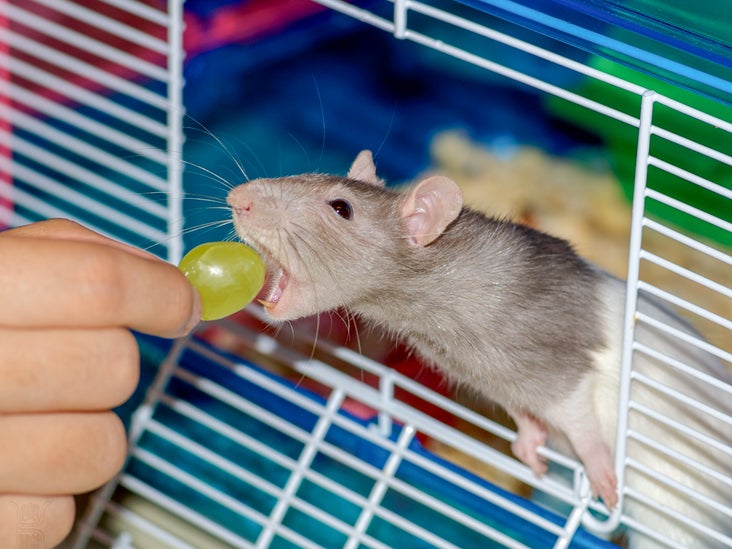
Ear infections should be treated aggressively with antibiotics and anti-inflammatory medication. You should probably do the antibiotics three weeks minimum but a whole month is probably recommended.
It was originally used in the water supplies of poultry farms.
What rat antibiotics for rat ear infection. Topical antibiotics- These are placed directly into the ear to treat the ear infection. This is more effective if the ear drum tympanic membrane is ruptured. We typically use ciprofloxacin or neo-poly dex ophthalmic drops.
In addition to the effect that Ambroxol has to help flush out your rats inner ear Ambroxol is a topical painkiller and anti-inflammatory too. So bottom line giving Ambroxol as an adjunct to the standard of care for ear infection Otitis Media could help your rat feel better recover more quickly and suffer fewer long term ill effects sequela. Treating an Ear Infection.
A veterinarian will likely prescribe antibiotics to help treat your rats ear infection. Common medications such as amoxicillin and baytril may be required for three to six weeks. Your vet may show you how to apply the medication to the ear.
Flush your rats ear with a dropper. Your vet may recommend an ear flush. Typically youll have to flush your rats ear every day.
To flush your rats ear use the dropper that comes with the specific product and follow the directions your vet gives you. The amount of flush you will use depends on the specific product. Treat with antibiotics for more severe cases.
Your veterinarian might prescribe a topical treatment oral antibiotics or steroids such as prednisone. The veterinarian will also tell you the dosage how to administer the medication and the length of the treatment. If your pet rat is having an infection or any problem on their ears chances are theyll be scratching them constantly.
If you notice this bring them to a veterinarian as soon as possible. By constantly scratching besides the infection your pet rat might accidentally create wounds inside and around the ears making matters even more complicated. As the infection spreads from the throat and esophagus it finds its way up the Eustachian tubes into the rats ear.
Thus complicating an already serious infection. These usually require extensive treatment plans including dual antibiotics typically enrofloxacin doxycycline or amoxycillin along with steroid creams or ear flushing solutions. Bactericidal broad-spectrum antibiotic once touted as being the miracle drug for mycoplasma but weve found that using the recommended dose symptoms return very soon after ending treatment although some rat owners report having excellent results.
You also dont want to mess around with ear infections they are very close to the brain so need dealing with quickly to make sure they dont spread which can get serious fast. You want your rat on antibiotics and a steroid asap. I would personally go for amoxyicillin and baytril plus predinose the steroid.
Baytril for rats. Baytril is a brand name for the drug Enrofloxacin one of the many antibiotics that vets have at their disposal. It was originally used in the water supplies of poultry farms.
This was a measure to prevent and treat infections. In 2005 the FDAs approval to use Baytril in this way was withdrawn. An inner ear infection can result in a permanent head tilt even if treated but a mild head tilt wont affect the rat much.
Treating Mycoplasma The antibiotics that tend to be most effective against mycoplasma are doxycycline and enrofloxacin. The Rat and Mouse Club of America RMCA Drug Usage Chart for Rats. Slightly more broad-spectrum antibiotic than amoxicillin.
Good to prevent infection after surgery or injury for urinary tract infections or secondary infections. Inner-ear infections wry neckhead-tilt and injury. Use only for very short periods.
Ear infections should be treated aggressively with antibiotics and anti-inflammatory medication. You should probably do the antibiotics three weeks minimum but a whole month is probably recommended. Rats with weakened immune systems are more likely to become infected.
Inflamed skin and sores may be observed on the head and neck and the resulting abscesses may enlarge and spread under the skin to form lumps tumors around the face and head. The infection is treated with antibiotics or antibioticsteroid ointments applied as directed. There is no treatment for pituitary tumors in rats.
Early spay or neuter may result in fewer tumors as rats age. However this is impractical in most cases. Inner ear infections can be very difficult to treata course of oral antibiotics and topical antibiotics can be successful.
If your rat has difficulty taking medicine orally use antibiotics such as enrofloxacin Baytril gentamicin Gentocin or Tylosin. Remember dilute nebulization medicines in normal saline unless otherwise directed by your veterinarian. Good for respiratory infections.
Has been shown to have excellent results on younger rats but is less effective on chronic older rats. Use in combination with Doxycycline for better results in these cases. There have been two reported cases of stroke using this combination although they have not been.
Administering of oxygen Lasix to control swelling in the brain Corticosteroids or prednisone to decrease inflammation and an anticonvulsant to decrease seizure activity. Administer medicines aas prescribed by your vet. Keep the rat in a one level cage and assist with eating and cleaning until the rat recovers.
A urinary tract infection or the swelling and infection of the bladder or urethra is a relatively minor health issue in rats. It still warrants treatment with antibiotics or other medications to bring the rat back into good health. A rodent UTI can be broken down into two different names or it can be a full urinary tract infection.
I recently just fixed an ear infection in one of my rats. Unfortunate you absolutely need to take it to a vet. They will give you an antibiotic most likely Baytril.
You cant get it online you will need a prescription. It is not an expensive medicine.